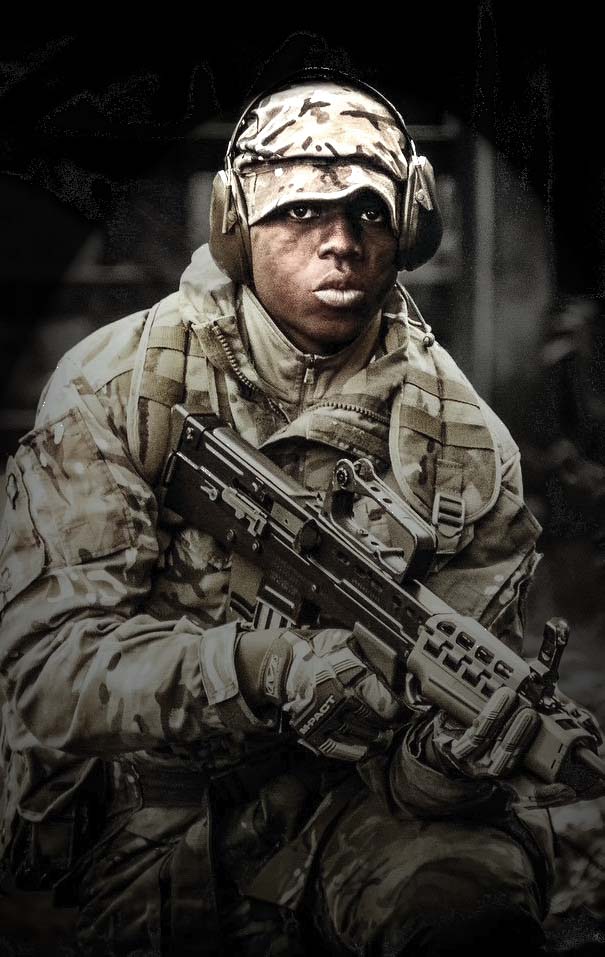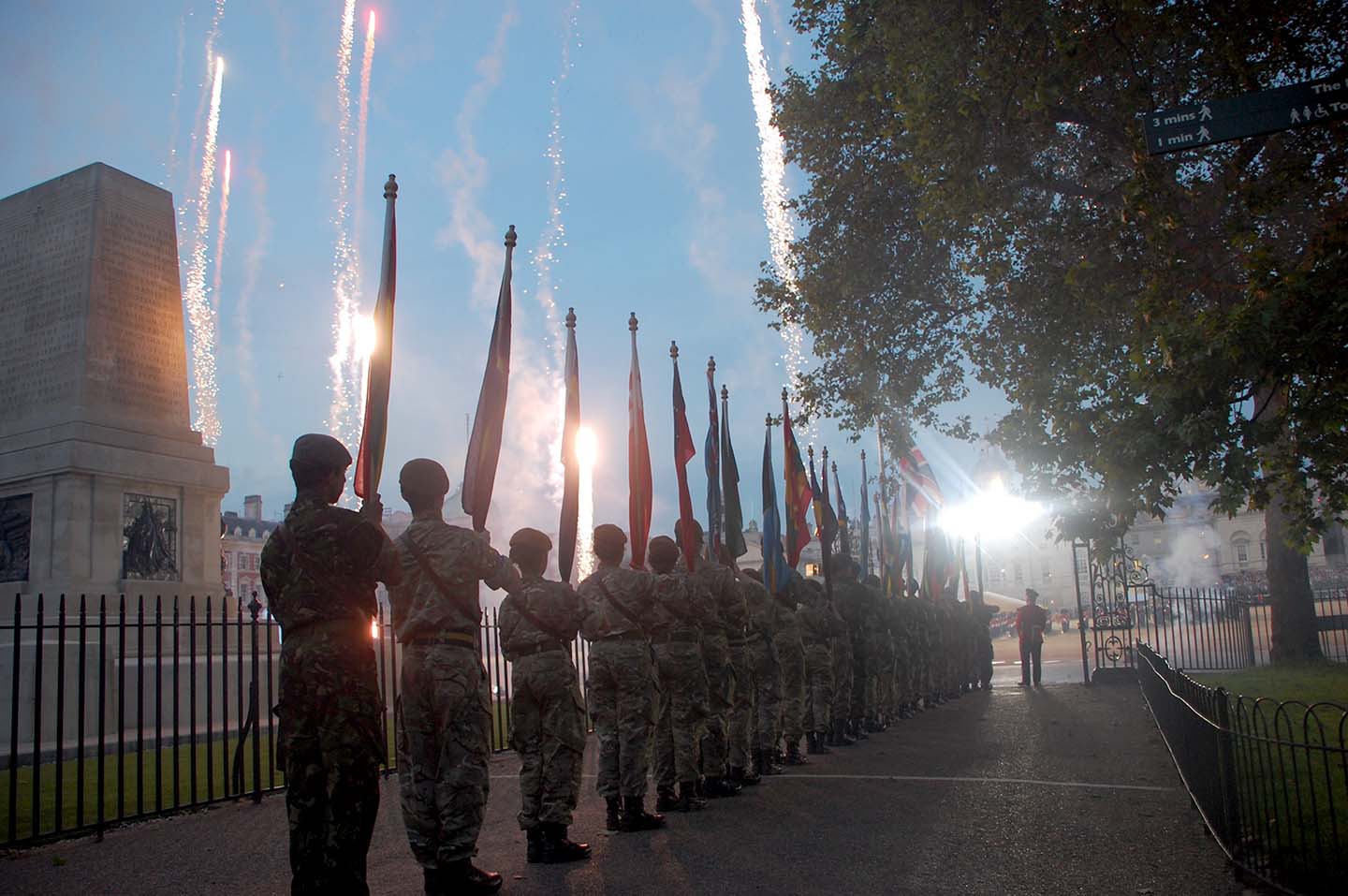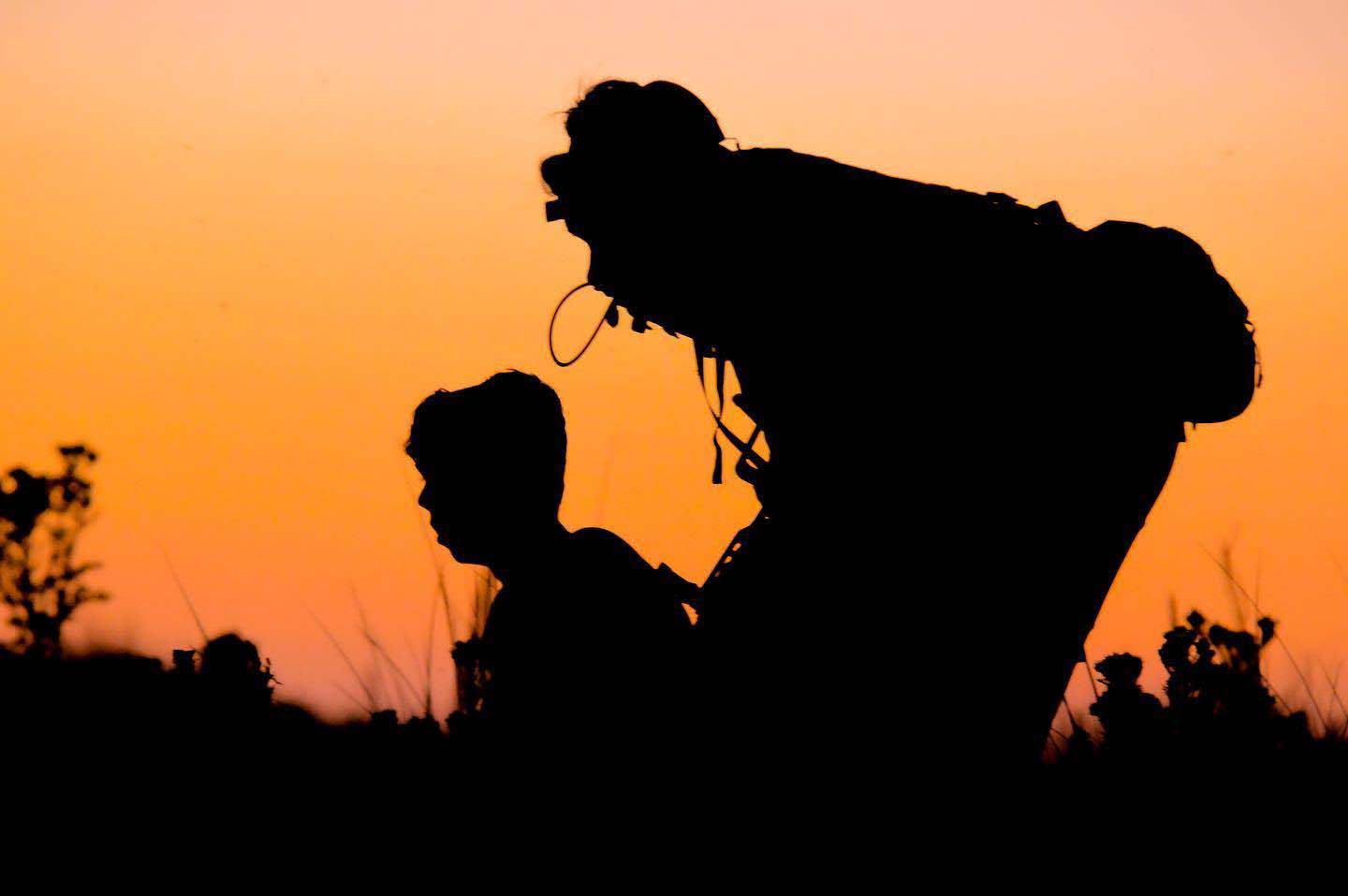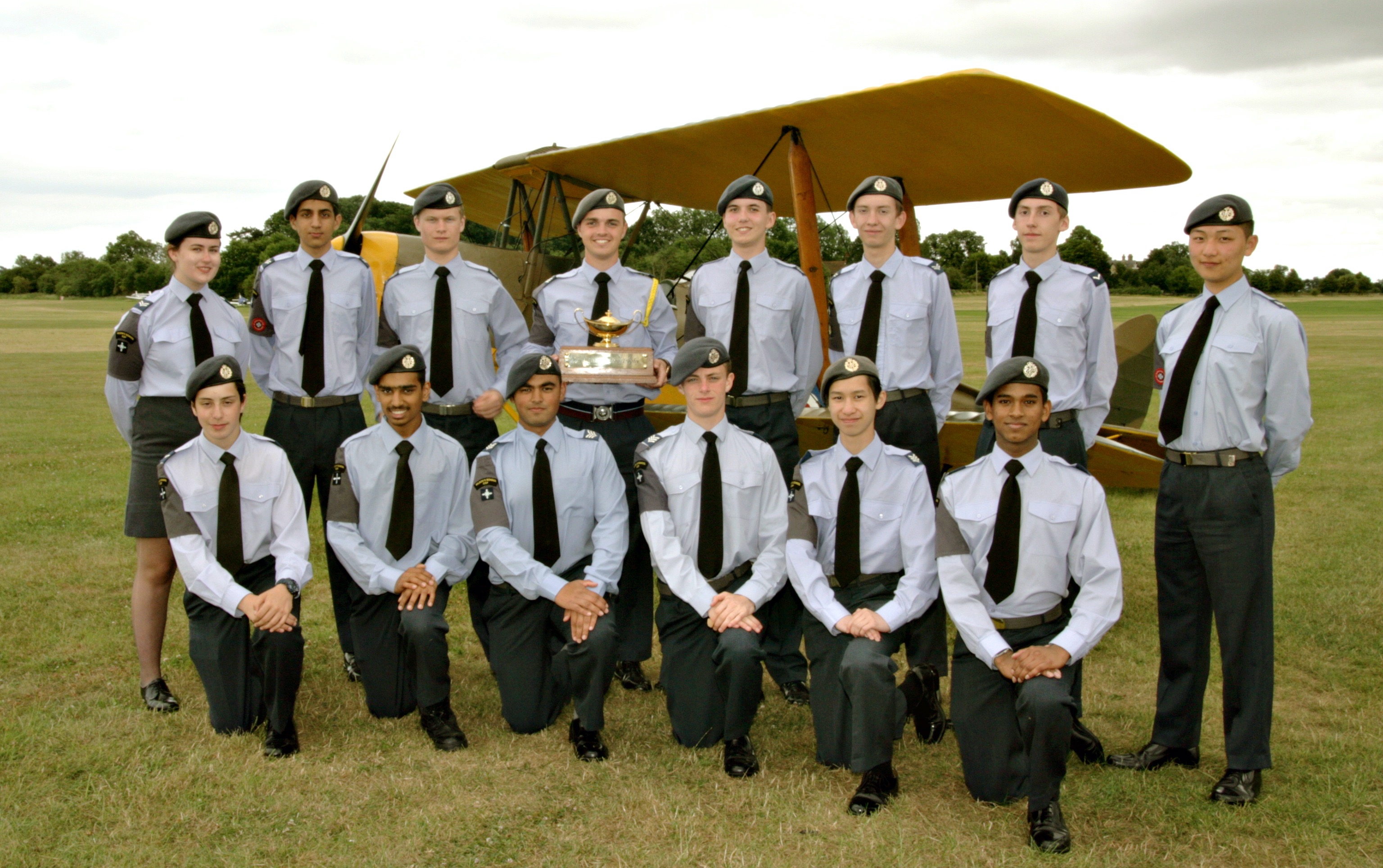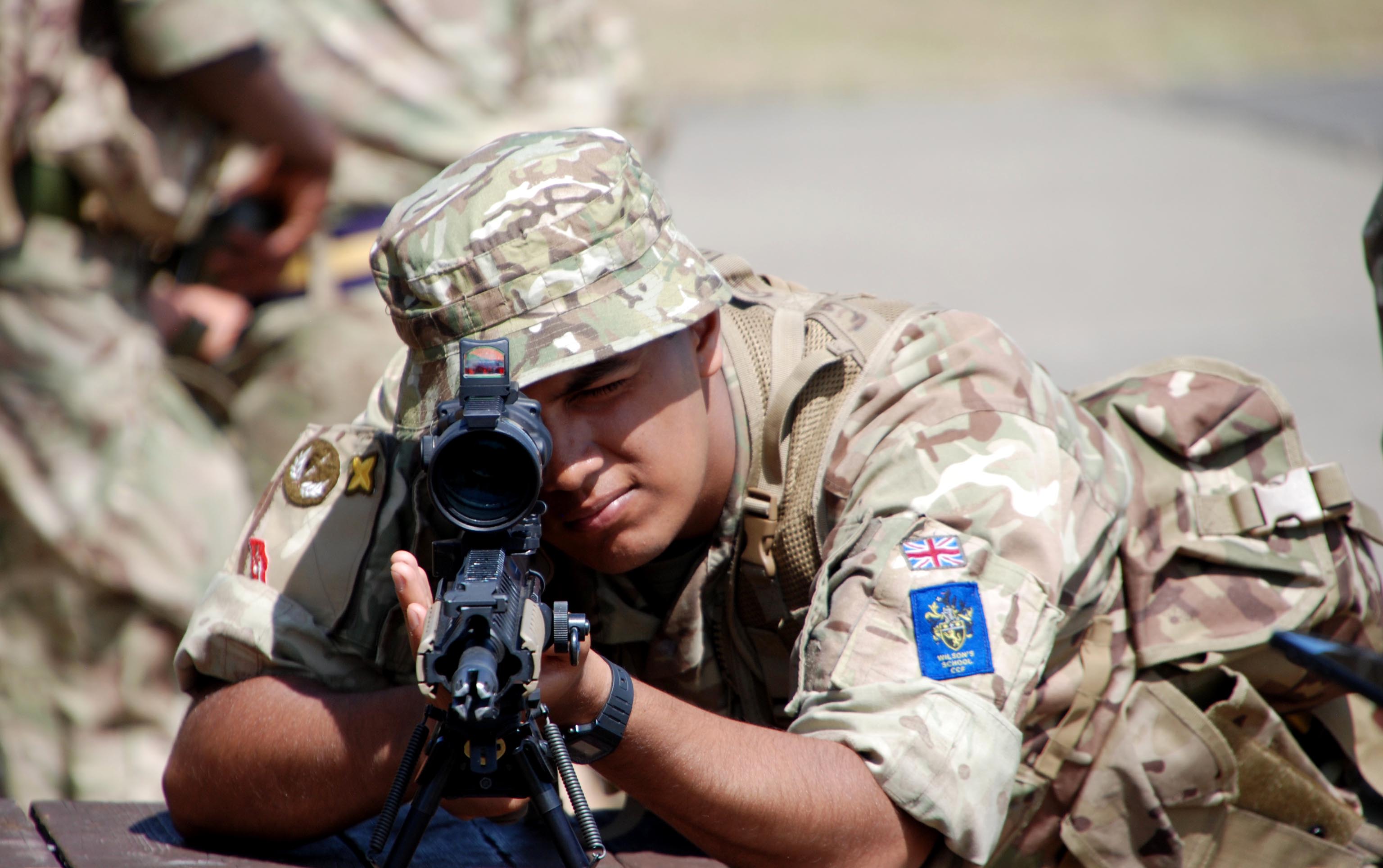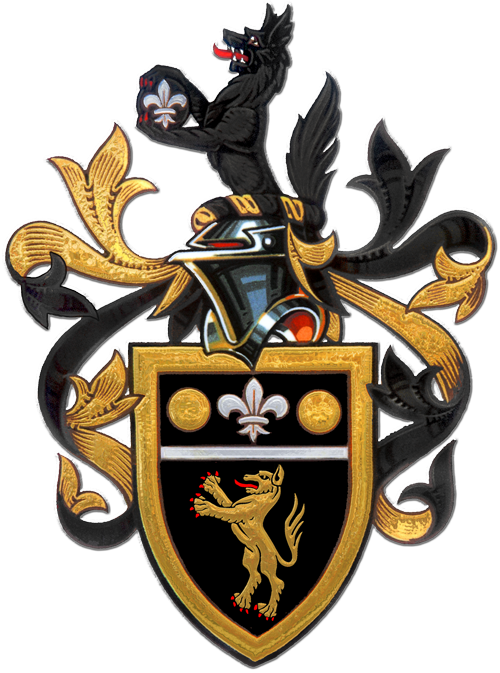Combined Cadet Force (CCF)
Wilson's School CCF was established in 1910 as an Army Officer Training Corps on the original Camberwell site by a teacher, Captain Edmonds. It continued to flourish when the school moved to its present site in Wallington, Surrey, and is now a Combined Cadet Force with Army and RAF sections, the latter introduced in 1964.
The CCF trains young men and women to develop their qualities of leadership, self-reliance and initiative, and offers unique opportunities for outward-bound activities such as mountaineering, gliding, orienteering and parachuting.
All pupils in Years 9 and above are eligible to join this voluntary activity as part of either the Army or RAF contingent. There are weekly activity sessions and twice yearly camps. Several cadets are selected each year to attend advanced leadership courses.
In January 2014, Wilson's became the host school for a CCF partnership with Wallington High School for Girls. This is proving to be a very successful partnership with many of Wallington High School for Girls year 9 students joining the CCF and parading regularly at Wilson's.
Aims
Since its inception, the Corps has sought to contribute significantly to the qualities and skills that boys need to meet life's ever-changing expectations and challenges. It encourages the development of initiative, responsibility, confidence and assertiveness, and through individual and group activities boys will have the opportunity to acquire self-reliance, leadership skills, self-discipline, perseverance and endurance.
The CCF is an ideal introduction to life in the military services, but it is a worthwhile extra-curricular activity in its own right for those who want to broaden their horizons and take advantage of the varied instruction and training on offer. The Corps is not a recruitment agency for the armed forces, but derives full benefit from the support and commitment given by the military services and personnel attached to the school sections. Through the experience and enthusiasm of senior officers, cadets develop a sense of pride in their Corps and maturity of judgement in both team and individual situations.
One of the strengths of the CCF is the high standard of instruction expected from those in positions of authority, with due attention paid to health and safety matters whenever relevant. Only authorized personnel may take responsibility for cadet training, and this gives cadets the reassurance that enables them to enjoy activities to the full, and reassures parents that appropriate oversight and guidance are available at all times during training with military equipment and on outdoor activities.
Recruitment and Training
Recruitment starts in Year 9, when recruits join the Arras Company and will attend every week on Tuesday afternoon.
The CCF offers an Army and an RAF Section with a training programme which goes from basic training in Year 9 to Senior Non-Commissioned leadership roles in the Sixth Form following the CCF (Army) and RAF Air Cadet syllabuses. There are three camps a year along with a number of competitions. The Army Section won Silver Medals at the 2019 Cambrian Patrol Competion and were the winners of the LONDON DISTRICT Military Skills Competition. In the same Year the RAF were regional and National Royal Air Squadron Trophy Champions.
The Contingent Commander, Major Burton is a former Contingent Commander of the Year recipient, while the OC of the Army Section, Captain Grant, was awarded a commendation by the RCFA for a lifetime's dedication to the Cadet Forces.
Training Camps in the CCF
The CCF has a rolling programme of progressive training and promotion, which includes skills training, methods of instruction and leadership courses. We are a Ministry of Defence funded unit, with a structured syllabus of 40% adventure training and 60% combined Army and RAF theoretical, technical and practical skills. Cadets of all ranks are externally assessed by regular service personnel.
Cadets parade for two and a half hours each week, and there are three camps per year. There is a combined Army and RAF camp during the February half-term; sat the end of the Summer term and in October half-term with the RAF also getting away in October. These camps enable our cadets to meet those from other school CCF units and to engage in a variety of training and competitive tasks and challenges.
